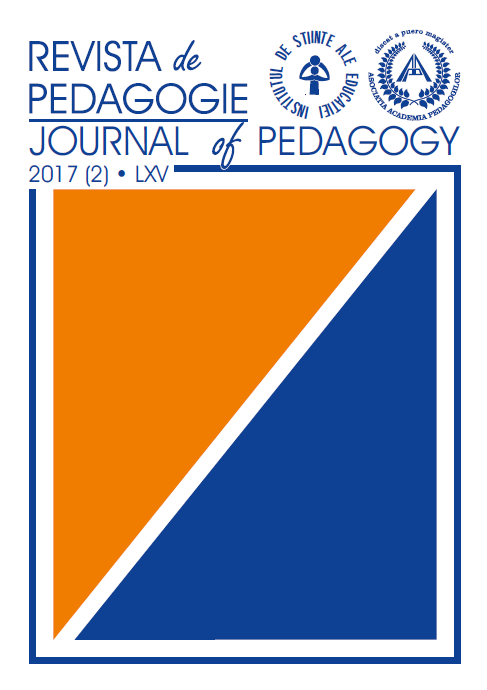SELF-REGULATION RESEARCH IN THE CONTEXT OF EDUCATIONAL NEUROSCIENCE – A SYSTEMATIC REVIEW
SELF-REGULATION RESEARCH IN THE CONTEXT OF EDUCATIONAL NEUROSCIENCE – A SYSTEMATIC REVIEW
Author(s): Violeta Maria Caragea, Lucian Voinea, Miruna Luana MiulescuSubject(s): Education
Published by: Centrul Național de Politici și Evaluare în Educație
Keywords: educational neuroscience; school context; self-regulation; systematic review
Summary/Abstract: Self-regulation in school contexts is a subject that caught the attention of researchers from many disciplines. Educational neuroscience is an emerging research field aiming to bridge the neuroscientific knowledge and methodology with those of more consecrated research disciplines investigating learning and education, like psychology, sociology or education. Our paper investigates recent empirical studies exploring self-regulation in preK-12 educational contexts and which were identified as educational neuroscientific literature. As a result of an extensive search and filtering process conducted in conformity with the systematic review methodology, we found five articles that passed the predefined filtering criteria. Our findings suggest that this type of literature appeared mostly in the last decade with the occasion of new neuroscientific methodologies allowing conducting non-invasive advanced brain studies. The main self-regulation elements these studies focus on are academic motivation, attention orientation, self-perception on own mental abilities and behaviours, cognitive and emotional engagement in learning, social and task-related behaviour regulation. The methodologies used consisted mainly in self- or others-reported questionnaires, behavioural measures evaluation, academic performance measurement, computerized testing of cognitive abilities, physiological measures recordings (e.g. saliva or blood samples, heart rate), electroencephalography (EEG), and functional magnetic resonance imaging (fMRI). The samples included in the reviewed articles vary from preschool to primary, middle and high school students, comprising 376 participants in total. The reported research outcomes are rather limited but they also offer optimism regarding the possibilities to use neuroscientific methods for investigating self-regulation in an educational context. Various aspects regarding limitations of this type of research are discussed.
Journal: Revista de Pedagogie
- Issue Year: LXV/2017
- Issue No: 2
- Page Range: 7-25
- Page Count: 19
- Language: English

